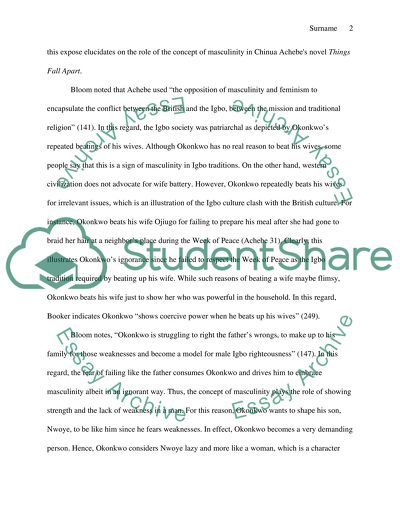Cite this document
(“The Concept of Masculinity in Things Fall Apart Research Paper - 1”, n.d.)
Retrieved from https://studentshare.org/literature/1591188-the-concept-of-masculinity-in-things-fall-apart
Retrieved from https://studentshare.org/literature/1591188-the-concept-of-masculinity-in-things-fall-apart
(The Concept of Masculinity in Things Fall Apart Research Paper - 1)
https://studentshare.org/literature/1591188-the-concept-of-masculinity-in-things-fall-apart.
https://studentshare.org/literature/1591188-the-concept-of-masculinity-in-things-fall-apart.
“The Concept of Masculinity in Things Fall Apart Research Paper - 1”, n.d. https://studentshare.org/literature/1591188-the-concept-of-masculinity-in-things-fall-apart.


